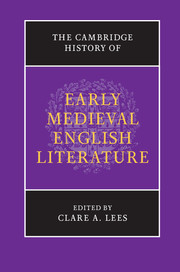Book contents
- Frontmatter
- Contents
- List of Illustrations
- List of Contributors
- Acknowledgements
- List of Abbreviations
- Introduction: literature in Britain and Ireland to 1150
- I WORD, SCRIPT AND IMAGE
- 1 Writing in Britain and Ireland, c. 400 to c. 800
- 2 The art of writing: scripts and scribal production
- 3 Art and writing: voice, image, object
- 4 Of Bede’s ‘five languages and four nations’: the earliest writing from Ireland, Scotland and Wales
- 5 Insular Latin literature to 900
- 6 Bede and the northern kingdoms
- II EARLY ENGLISH LITERATURE
- III LATIN LEARNING AND THE LITERARY VERNACULARS
- Bibliography
- Index of manuscripts
- Index
1 - Writing in Britain and Ireland, c. 400 to c. 800
from I - WORD, SCRIPT AND IMAGE
Published online by Cambridge University Press: 05 February 2013
- Frontmatter
- Contents
- List of Illustrations
- List of Contributors
- Acknowledgements
- List of Abbreviations
- Introduction: literature in Britain and Ireland to 1150
- I WORD, SCRIPT AND IMAGE
- 1 Writing in Britain and Ireland, c. 400 to c. 800
- 2 The art of writing: scripts and scribal production
- 3 Art and writing: voice, image, object
- 4 Of Bede’s ‘five languages and four nations’: the earliest writing from Ireland, Scotland and Wales
- 5 Insular Latin literature to 900
- 6 Bede and the northern kingdoms
- II EARLY ENGLISH LITERATURE
- III LATIN LEARNING AND THE LITERARY VERNACULARS
- Bibliography
- Index of manuscripts
- Index
Summary
Haec in praesenti iuxta numerum librorum quibus lex diuina scripta est, quinque gentium linguis unam eandemque summae ueritatis et uerae sublimitatis scientiam scrutatur et confitetur, Anglorum uidelicet Brettonum Scottorum Pictorum et Latinorum, quae meditatione scripturarum ceteris omnibus est facta communis.
(HE, i.1)[At the present time, there are five languages in Britain, just as the divine law is written in five books, all devoted to seeking out and setting forth one and the same kind of wisdom, namely the knowledge of sublime truth and of true sublimity. These are the English, British, Irish, Pictish as well as Latin languages; through the study of the scriptures, Latin is in general use among them all.]
When Bede published his Ecclesiastical History of the English People in 731, he included in his preface this famous comment on the languages in use in his own day. In dovetailing Britain’s linguistic complexity into the biblical patterning of the story he was about to relate, he betrayed his firm belief in the superiority of Latin as the language of Roman Christianity and of literate education. Implicit within Bede’s conspectus is a narrative of fundamental significance: the demise of Latin as the signal of Britain’s place within the Roman Empire, and its transformation into an elite schoolroom language necessary for a ‘religion of the book’, Christianity. In the course of this seismic linguistic shift, the universalizing features inherent within Christianity interacted with local particularities of language, politics and identity in exceptionally creative ways which transformed the cultural landscape. As will rapidly become clear, Ireland is deeply implicated in that British story: the purpose of this survey is to sketch the framework for these interconnected literary histories.
- Type
- Chapter
- Information
- Publisher: Cambridge University PressPrint publication year: 2012



